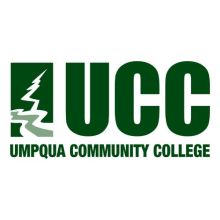Umpqua Community College
Selected Programs at Umpqua Community College
Explore programs at Umpqua Community College. This list is curated by SkillPointe to match skills-based industries and careers that don't require a four-year degree.
Browse Training Programs (34)
Browse Earn + Learn Programs (4)
Electrician
Industrial Machinery Mechanic
Address
1140 Umpqua College Rd.
Roseburg, OR 97470-0226
Roseburg, OR 97470-0226
Phone number
541-440-4600

